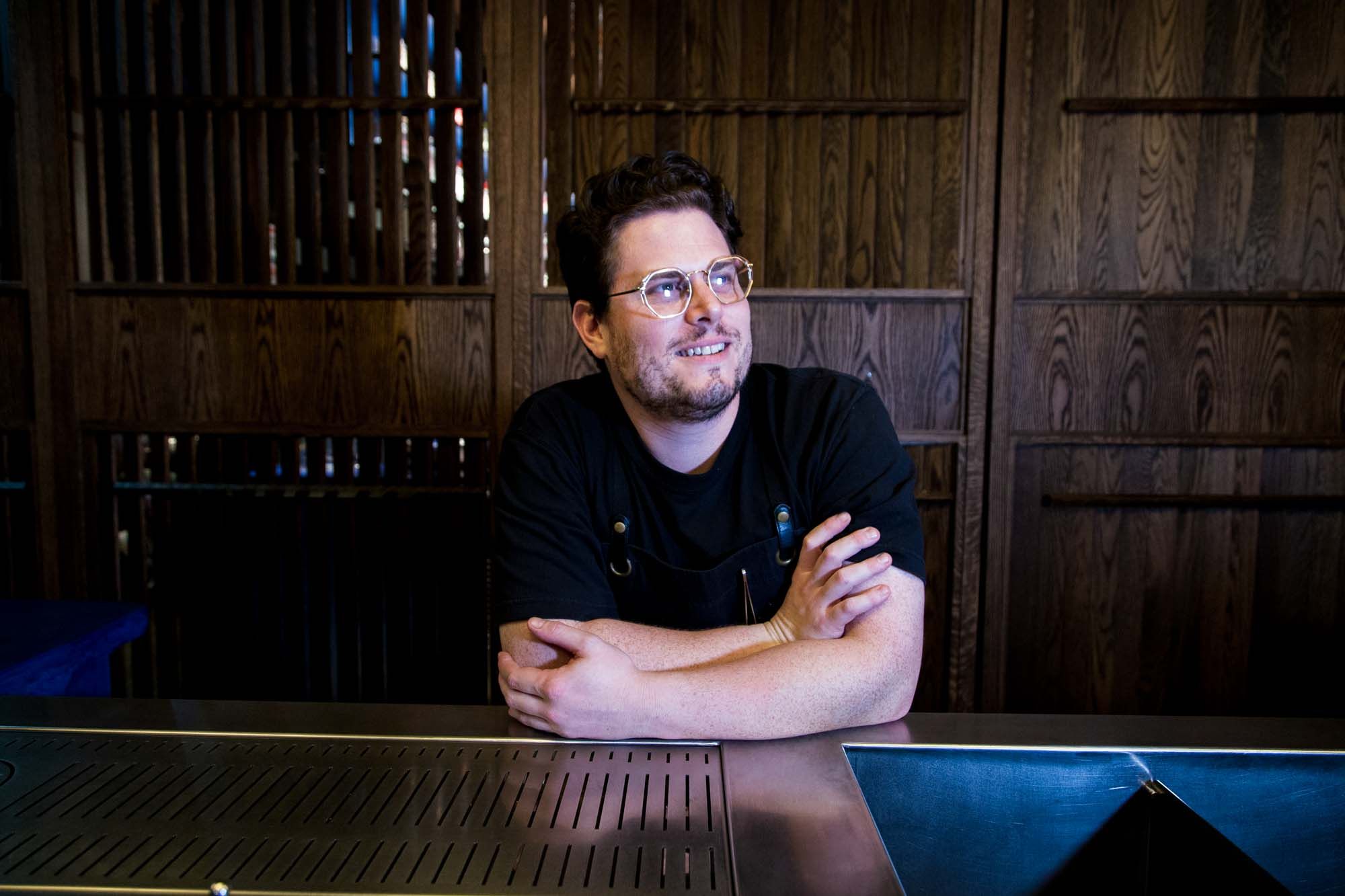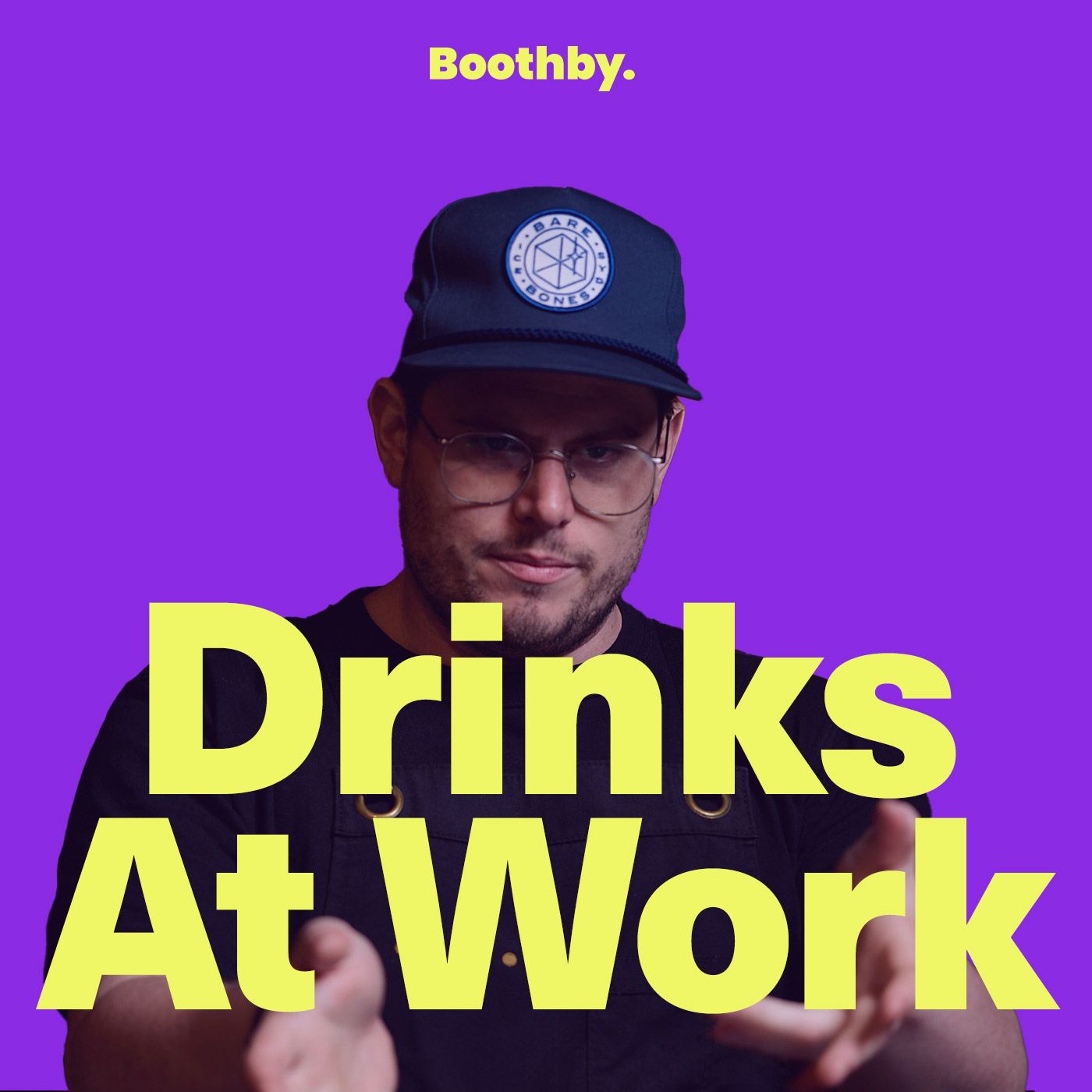James Irvine thinks that “you’ve got to go in with some humility.”
James Irvine talks cocktail comps, creativity, and his unique role at Four Pillars.

You can listen to this episode in the player here, or take a listen on Apple Podcasts, Spotify, Amazon Music and on Android.
When you look at bartenders who have built longstanding careers in hospitality, they tend to be one of two types: those who lean more into the operations side of things, and those whose prefer the creative side of the business.
Of course, you can't have one without the other: the creativity needs to be put in place and replicated every day and every service; and I'm sure we've all been to a restaurant or a bar that runs just fine, but leaves us uninspired.
James Irvine's bartending career definitely leans more towards the creative side of things. If you've had a chance to try his drinks — whether it's the more avant-garde and creative stuff he puts out at the bar of the Four Pillars Lab in Sydney's Surry Hills, or the more classic creations he masterminded back in the day at The Baxter Inn and Shady Pines Saloon — you'll be aware of his talent.
He's one of the few individuals carving out a niche as a creative specialist at a high level, and that for me makes this interview a little different to most of the previous episodes of Drinks At Work so far. If you're of a creative bent, you'll enjoy James Irvine bending your ear.

“People aren’t going to walk into your venue and think the world of you.”
One thing that Irvine returns to again and again in our interview is the idea of having fun. The Australian gin scene likes to have fun. The Australian bar scene is fun. They don’t take themselves too seriously at Four Pillars. It’s a theme he returns to again and again, and something that he took away from his time at Swillhouse.
“If you think the world of yourself, then you’re already starting on the back foot. You know, you’ve got to go in with some humility. I think the best way to do it is to have fun.”
It’s a simple reminder that the best creative endeavours, in the world of hospitality and drinks at least, always have an element of fun to them — and it makes for an enjoyable career.
“I’ve always been open to collaboration.”
When Irvine took one the role looking after cocktail lists across Shady Pines Saloon, The Baxter Inn, and Frankie’s Pizza hew was relatively young and had just joined the organisation. It could have been easy to put a foot wrong and to get the teams offside with what he was trying to do — especially given that those bars were some of not just Australia’s finest bars, but among the best in the world, and with the staff to match.
So he went in and was open to collaboration with the bartenders in the venue. He also kept pushing himself, and was willing to revisit previous menus ato see how they too could be improved.
“As a bartender, if you look back and say, ‘that’s the best work I’ve ever done,’ then you’ve probably hit your plateau.”

Cocktail comps “don’t make you better than anyone,” but it is something different
Brands and bartenders (and publications) can make a lot of cocktail competitions — I should know, I judged a bunch of them during my time at Australian Bartender, and have written about them a lot.
With the pandemic (hopefully) in the rearview mirror, competitions are beginning to ramp up again — Diageo’s World Class is coming to Sydney in September, for one — so you can expect to hear more and more about them if you’re a bartender.
But are they a necessary thing to do for bartenders wanting to further their careers?
“I know amazing bartenders,” says Irvine. “They just don’t want to go up on stage and be a cocktail competitive cocktail bartender. And that’s totally fine.”
Irvine is quick to acknowledge how thankful he is for the two big cocktail competition wins he had, in the Australian final of Angostura’s global cocktail competition and in the national final for Bacardi Legacy a few years back. So whilst he doesn’t think they are necessary or that they connote status on a bartender — there are plenty who don’t partake who are great bartenders — he does see some benefits to them, like improving speaking and presentation skills.
“The one thing I loved about it was it was just something different,” Irvine says. “You know, I’m the hamster on the wheel every day — and that’s kind of how sometimes this feels, you just keep running, you keep that wheel rolling. Sometimes you want to do something different. And for me, that was a really great creative outlet that you got to have a lot of fun doing.”
Thanks for listening to Drinks At Work and for reading Boothby. If you like the episode or enjoy this email, please send it on to a friend who might like it, too — after all, we're a small start-up publisher and can always use the help to spread the word. And you can let me know what you think about this week’s episode, and who you'd like to hear from on the podcast by replying to this email.
You can listen to Drinks At Work on Apple Podcasts, Spotify, Amazon Music and on Android.

